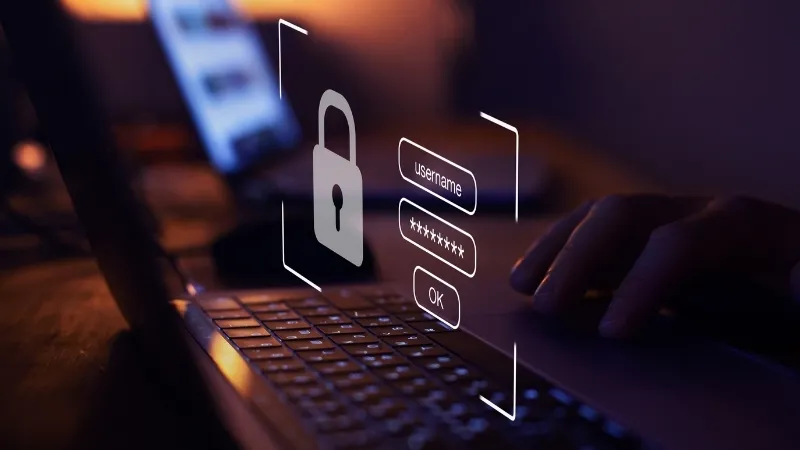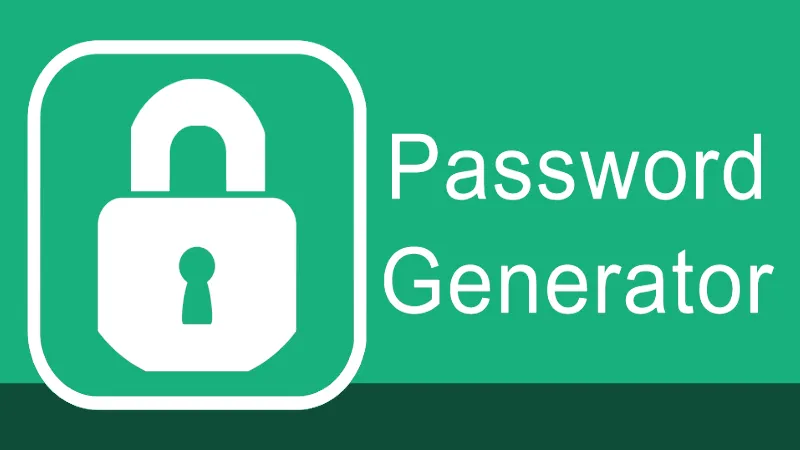
Despite your best efforts to create strong passwords, they may not provide the protection you think they do against hackers. One of the primary issues is the prevalence of data breaches, where hackers steal passwords in bulk from compromised databases.
Data breaches can expose your credentials, and if you’re using the same password across multiple sites, a single breach can expose all your accounts. Furthermore, phishing scams can deceive you into revealing your passwords, regardless of their strength.
Hackers often employ social engineering tactics, luring unsuspecting users into revealing sensitive information. Even the most complex passwords are vulnerable to phishing or social engineering tactics. So, what’s the real solution to ensuring your security in an increasingly perilous digital landscape? Let’s find out.
What to Do to Make Passwords Non-Hackable?
To make your passwords non-hackable, you need to adopt several key practices, like:
1. Use Multi-Factor Authentication (MFA)
Adding Multi-Factor Authentication (MFA) to your online accounts is one of the most effective strategies for enhancing security. MFA requires you to provide more than just your password during login, which adds an important layer of protection.
Even if a hacker manages to obtain your password, they won’t have access to your secondary verification method, making unauthorized access considerably less likely. There are various forms of MFA, from one-time codes to biometrics, like fingerprints or facial recognition, to physical keys or apps like Google Authenticator or Authy
By enabling MFA, you drastically reduce your vulnerability to hacking attempts. This extra security measure is especially important for sensitive accounts, including email, financial, and social media platforms, where breaches can have serious consequences.
Pro tip: Always enable MFA wherever it’s available to guarantee your accounts remain secure. In today’s digital landscape, relying solely on strong passwords isn’t enough, MFA is vital for safeguarding your online presence effectively.
2. Avoid Reusing Passwords Across Sites
Reusing passwords across multiple sites greatly increases your vulnerability to cyberattacks. When you use the same password on different platforms, you’re fundamentally opening multiple doors for hackers.
Credential stuffing is a method cybercriminals use to access your other accounts if one account is compromised during a data breach. This technique involves trying the same username and password combination across various sites, making password reuse a considerable security risk.
To combat this, consider using a random password generator and manager. A password manager creates strong, unique passwords for each of your accounts and securely stores them in an encrypted vault.
Pro tip: Choose a trusted password manager like LastPass, Dashlane, or Bitwarden. Make sure your master password for the manager is exceptionally strong, and don’t forget to enable multi-factor authentication (MFA) for added security.
3. Regularly Update Your Passwords
Even with strong, unique passwords for each account, the risk of compromise remains if those passwords aren’t updated regularly. Passwords can be exposed in data breaches or guessed over time, allowing hackers a window of opportunity to exploit your credentials.
To mitigate this risk, adopt a proactive approach by regularly updating your passwords. Set a schedule to update your important account passwords every 6 to 12 months. This routine not only reduces the likelihood of unauthorized access but also keeps your accounts secure against evolving hacking techniques.
After any data breach, act swiftly by updating passwords on the affected sites immediately. The faster you change your passwords, the less chance hackers have to use compromised information.
4. Be Cautious of Phishing Attempts
Phishing attempts are a prevalent threat that can jeopardize your online security and lead to unauthorized access to your accounts. Hackers employ this common tactic to deceive you into revealing your password or other sensitive information.
You may receive emails claiming to be from a trusted source, such as your bank or service provider, and include urgent requests or fake links to malicious websites. To safeguard yourself, it’s essential to recognize the signs of phishing.
Always check the sender’s email address for inconsistencies; hackers frequently use slight variations to disguise themselves. Hover over links before clicking to verify they lead to legitimate websites.
5. Keep Your Software and Devices Updated
Keeping your software and devices updated is vital for maintaining strong password security. Outdated software serves as a common entry point for hackers, who actively seek vulnerabilities in operating systems and applications.
To guarantee your software is always current, enable automatic updates for your operating system, web browsers, and applications. This simple step can save you time and worry. Additionally, make sure your routers and other connected devices are up-to-date, as they can also contain security flaws.
Make it a habit to update your antivirus software and enable real-time scanning to detect threats as they arise. Utilizing security software to monitor for potential risks adds another layer of protection.
6. Avoid Public Wi-Fi
While maintaining updated software is a key step in protecting your passwords, the security risks don’t stop there. Public Wi-Fi networks, commonly found in cafes or airports, may seem convenient, but they pose significant security threats.
Hackers can easily intercept your data on these networks, employing tactics like Man-in-the-Middle (MITM) attacks to eavesdrop on your communications. This vulnerability can lead to stolen passwords and sensitive information.
To stay safe on public Wi-Fi, avoid accessing sensitive accounts such as banking or email. Consider using a Virtual Private Network (VPN) to encrypt your data, so attackers can’t decipher your information. Always disable the automatic connection feature on your devices to prevent unintentional exposure to unsecured networks.
Why are Random Password Generators important for cybersecurity?

Relying on random password generators can greatly bolster your cybersecurity measures. These tools create complex and unique passwords that are difficult to guess or brute-force, substantially reducing the risk of password-related breaches.
When you use a random generator, it eliminates the tendency to rely on easily guessable patterns or common phrases, which hackers often exploit. Moreover, the sheer randomness of the passwords produced guarantees that even if one password is compromised, it won’t lead to the exposure of your other accounts.
This is vital, as many individuals fall into the trap of reusing passwords across multiple sites. A breach on one platform can quickly cascade into a series of security failures.
Why should I include a mix of characters in my password
A password’s strength hinges on its complexity, and including a mix of characters is essential to enhancing that complexity. When you use uppercase and lowercase letters, numbers, and special characters like !, @, #, and $ you considerably increases the difficulty for hackers attempting to guess or crack your password.
Hackers often rely on dictionary attacks, where they systematically try common words and variations. By incorporating a variety of character types, you make it far less likely that your password will resemble any recognizable word or phrase.
Additionally, aiming for a length of at least 12 to 16 characters adds another layer of security. The longer and more varied your password is, the exponentially greater the number of possible combinations becomes.
Why should I use an Encrypted Password Generator?
Using an encrypted password generator can greatly enhance your password security by ensuring that your passwords are stored and shared in a secure manner. This tool adds an extra layer of security, considerably reducing the risk of interception during storage and sharing processes.
When you generate passwords using encryption, they’re not only complex but also shielded from potential breaches. Most people underestimate the vulnerabilities associated with traditional password storage methods. You expose your sensitive information when you write it down or save it in plain text.
Fortify Your Accounts with Multi-Layered Security
In a digital landscape riddled with threats, strong passwords alone are like a castle with an open drawbridge. To truly safeguard your accounts, embrace a multi-layered approach: use unique passwords, apply random password generators, and consider encryption for added security.
By fortifying your defenses, you can considerably lower your risk of falling prey to cybercriminals. Remember, in cybersecurity, vigilance is your best ally, and every precaution you take is a step toward a safer online experience.
